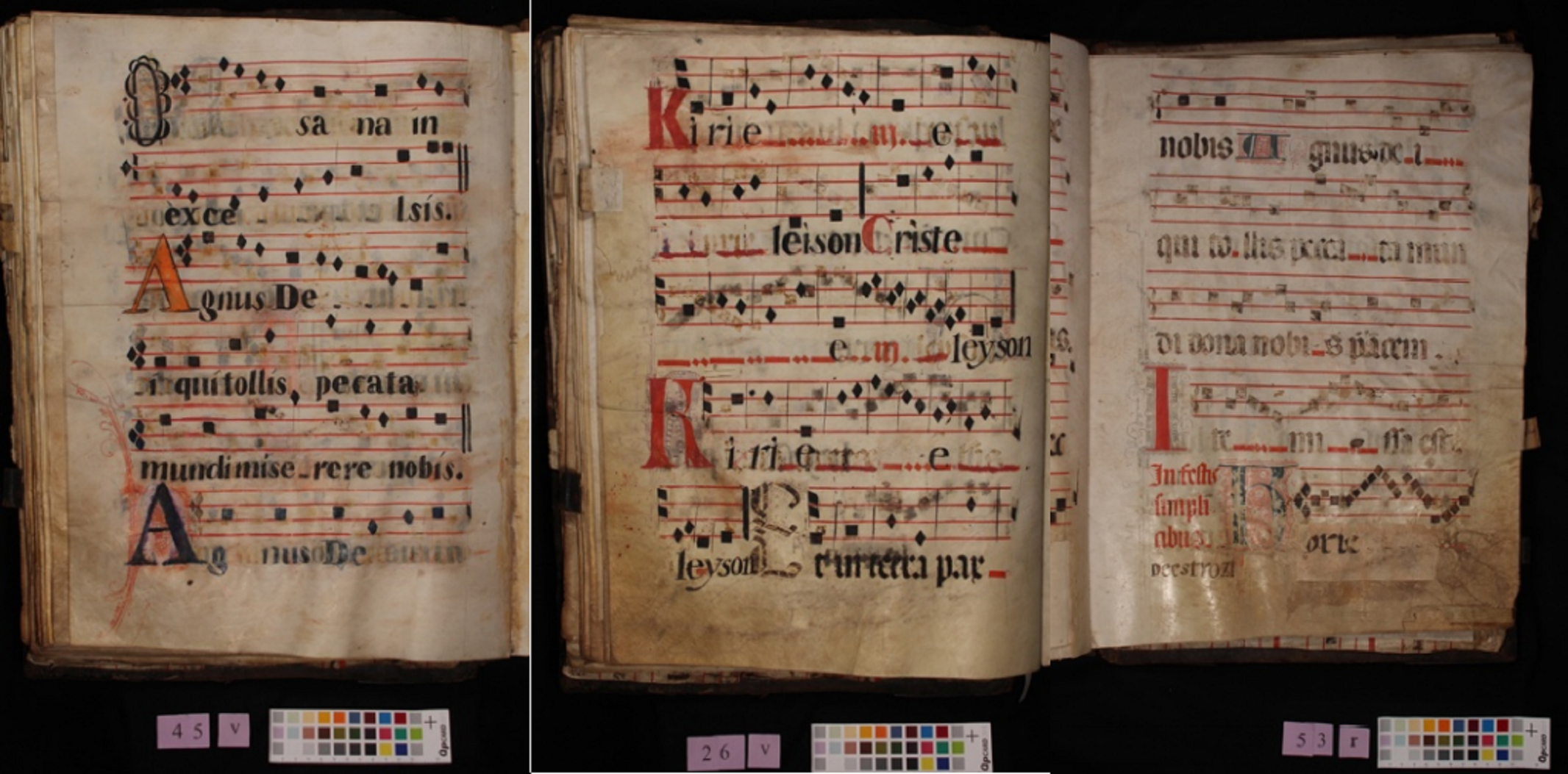UMKC researchers’ 21st century methods for analyzing records from the Middle Ages and the 17th century have received a $400,000-plus boost from two grants by the National Endowment for the Humanities.
One grant, for $324,317, goes to a team led by Jeffrey Rydberg-Cox and Virginia Blanton, both curators’ distinguished professors in English; Nathan Oyler, associate professor of chemistry; Zhu Li, associate professor of computer science and director of the Center for Big Learning; and Yugi Lee, professor of computer science. Their project, titled “Unlocking the Mysteries of a Medieval Chant Book with Multispectral Imaging,” furthers their work with a new method for analyzing early modern manuscripts and print materials. It draws upon special collections held by UMKC, the Linda Hall Library and the University of Kansas.
A sophisticated camera Oyler built is able to capture a wide spectrum of colors in Medieval manuscripts, including some the human eye cannot see, giving the other professors and the graduate students on their team the ability to extract more information from the texts. They hope the method eventually could be used widely by graduate students in their research, and by smaller libraries to analyze their own collections.
The team has been working on the project since 2014 and first published on it in 2015. Rydberg-Cox said the new grant will help finance refinements in the multispectral imaging equipment and support two graduate students on the team for three years.
Blanton said the team was gratified to have national funding affirm its work, and grateful to the UM system for funding at an earlier stage that helped get the project going.
“These NEH grants are very competitive, so it’s exciting to receive one and build on the support UMKC has given us. It shows we are headed in the right direction.”
The other grant, for $100,000, goes to a project of Viviana Grieco, associate professor of history and Latin American and Latinx studies, and Praveen Rao, who taught computer science at UMKC before moving to MU-Columbia earlier this year. Their project, titled “A Knowledge Graph for Managing and Analyzing Spanish American Notary Records,” aims to unlock thousands of notary records from Argentina.
The records, from the 17th century, were written in a script that can be difficult to decipher, Grieco said, even after years of study. Making the texts digital and developing a system for reading them will make them accessible to researchers.
And although notary records may sound dry, Grieco pointed out that “they touch on every aspect of life and how a society is organized. Wills, contracts, dowries and other records can tell us about trade, poverty and other economic, social and political arrangements.”
Like the other grant winners’ project, their work crosses disciplines to get a deeper look at the past. Grieco and Rao met while organizing a UM System summit on bringing technology and the humanities together, and it has been a fruitful collaboration.
Using “big data” techniques such as deep learning and scalable knowledge management, Rao said, will make it possible for researchers without substantial technical backgrounds to quickly search and access thousands of records for information relevant to whatever aspect of history and society they are researching. “It brings the humanities into the digital age,” he said.
Grieco said their project, just a year and a half old, also got an early boost from seed money from UMKC.
“These NEH grants are very competitive, so it’s very exciting to receive one and build on the support UMKC has given us,” Grieco said. “It shows we are headed in the right direction.”
The awards for UMKC were two of four that went to Missouri institutions from the NEH, and were among 238 grants totaling $30 million. The other Missouri projects will benefit the St. Louis Botanical Garden and an MU-Columbia project making a volume 18th-century engraved prints and essays available digitally.
A full list of the 238 grants by geographic location is available here.

